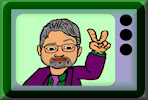Who will protect us from the dangers of the evil dark web
Over the past year we have been on a campaign to explain many internet buzzwords from the world wide web to deep web and dark net.
We see a lot of questions from the average internet user asking how they can be protected from the evils of the dark web that they keep hearing about in the media.
You often see questions on various online forums stating that if the dark web is synonymous with criminal activity and illegal black markets, why doesn’t the government just shut down the dark web.
Why doesn’t the government just shut down the dark web?
If you fully understand the concepts you will see that shutting the dark web to combat criminal activity is an absurd idea based on false assumptions.
Many people make the assumption that all anonymous traffic is related to illegal activities. That's simply not true!
Take a moment to understand the dark web
The dark web is a complex communication system that exists to allow anonymous traffic. People living outside the U.S. don't always share our freedoms, like free speech. Dark nets are used to get information into and out of places where free speech can get you killed.
Onion Routing, the concept behind the dark web, was developed by the U.S. Naval Research Lab for anonymous communications. Tor (The Onion Router) is a nonprofit organization responsible for maintaining the software used in accessing the Tor networks.
The average internet user will never use Tor or visit an Onion site, but they are fearful of the media created boogie man that waits for them "on the dark web." The media has made out the dark web to be some evil empire lurking in the darkness of the internet, waiting to reign fear and havoc on the innocent internet users just using the surface web in the light of day.
Shutting the dark web to combat black markets is an absurd idea
What would be the plan for the government to “take down” the dark web? In some cases the countries where black markets exist are the same countries where people are using the dark web to get the word out about their governments. What would you suggest, we isolate the entire country from the internet?
While the government can't shut down the dark web, they do shut down black markets. One of the first dark net black markets, Silk Road, was indeed shut down by the FBI and Europol. There are many law enforcement agencies working on shutting down black markets, but many illegal activities originate in countries where “the government” has no jurisdiction, or has no cooperation from the local governments.
How can I protect myself from the dark web?
Various commercials strike fear into the minds of the innocent internet users just using the surface web in the light of day telling them they need protection, some even suggesting that paying for a monitoring system would help them from the perils of the dark web.
I've used this quote and link in other answers, Roger Dingledine, an MIT-trained American computer scientist known for having co-founded the Tor Project aka “the dark web,” spoke at the Philly Tech Week 2017 and does acknowledge that “Just about any use of the “dark web” phrase is really just a marketing ploy by cybersecurity firms and other opportunists. They’re profiting on ignorance. It’s nonsense.”
Article from Philly Tech Week 2017: Stop talking about the dark web: Tor Project cofounder Roger Dingledine
Regarding all the services now cropping up to protect your information on the dark web, as Roger Dingledine states in the quote above, “They’re profiting on ignorance.”
Here's my rant on the subject of protection services from a few months ago: What frightens you more: the dark web or credit bureaus
Knowledge is power
Don't be afraid of the dark, in this case, the dark web. Knowledge replaces fear.
From the perspective of the average internet user wondering what they can do to protect themselves from the “dark web” keeping your personal information safe and secure doesn't change because of the dark web.
Changing passwords often, keeping different passwords for different services, logging off of systems and computers when finished, not using strangers computers for secure transactions, are all part of staying safe and secure while using the internet. All the common sense things don't change because of the dark web.
Learn how to travel the highway safely, whether we are talking motor vehicles or web browsers. Knowing where you are going before you stumble blindly into a new place will help keep you safe. That's up to you, don't always expect the government to protect you from your own stupidity.
The dark web is one segment of the internet, and like the internet itself, you will find good things there, as well as evil.
Learn more:
The difference between deep web and dark web in simple terms
Buzzwords from the world wide web to deep web and dark net
End Of The Silk Road: FBI Says It's Busted The Web's Biggest Anonymous Drug Black Market
Tags:
